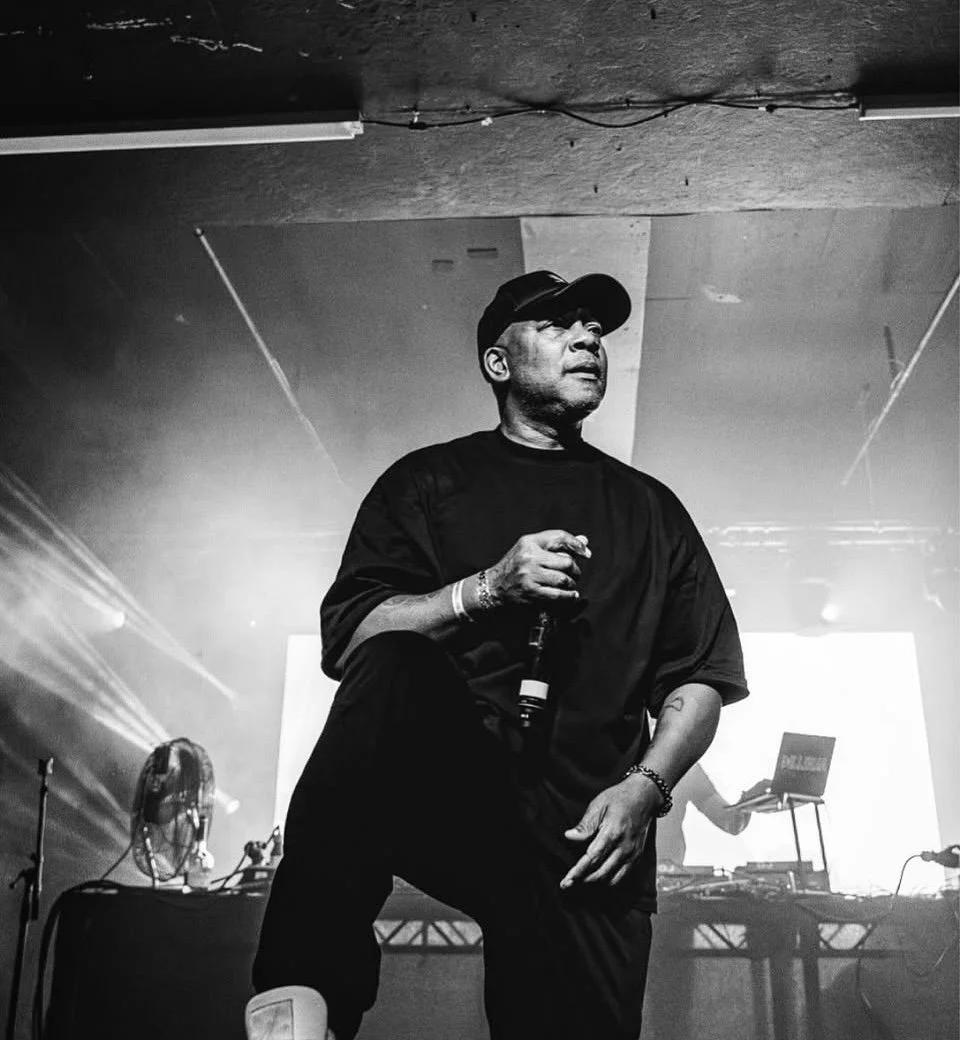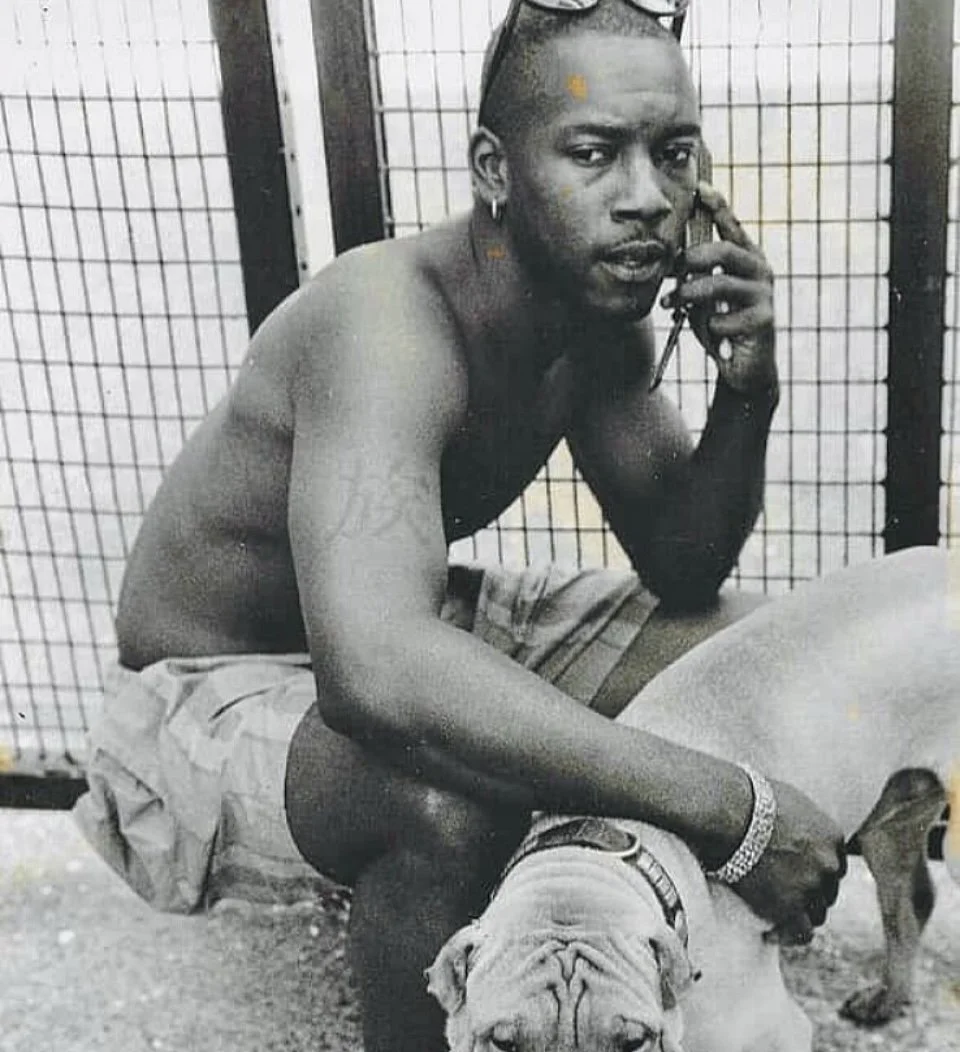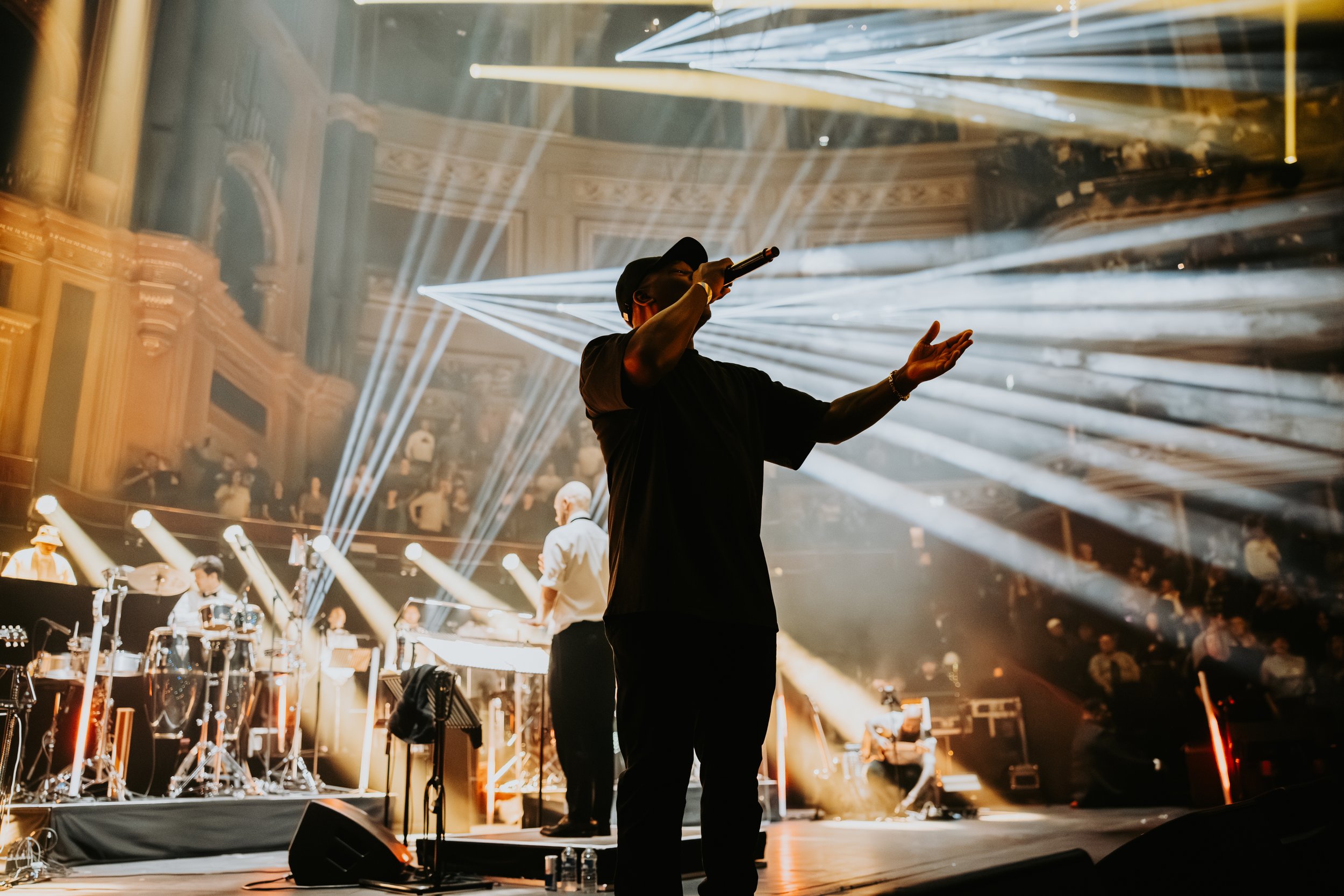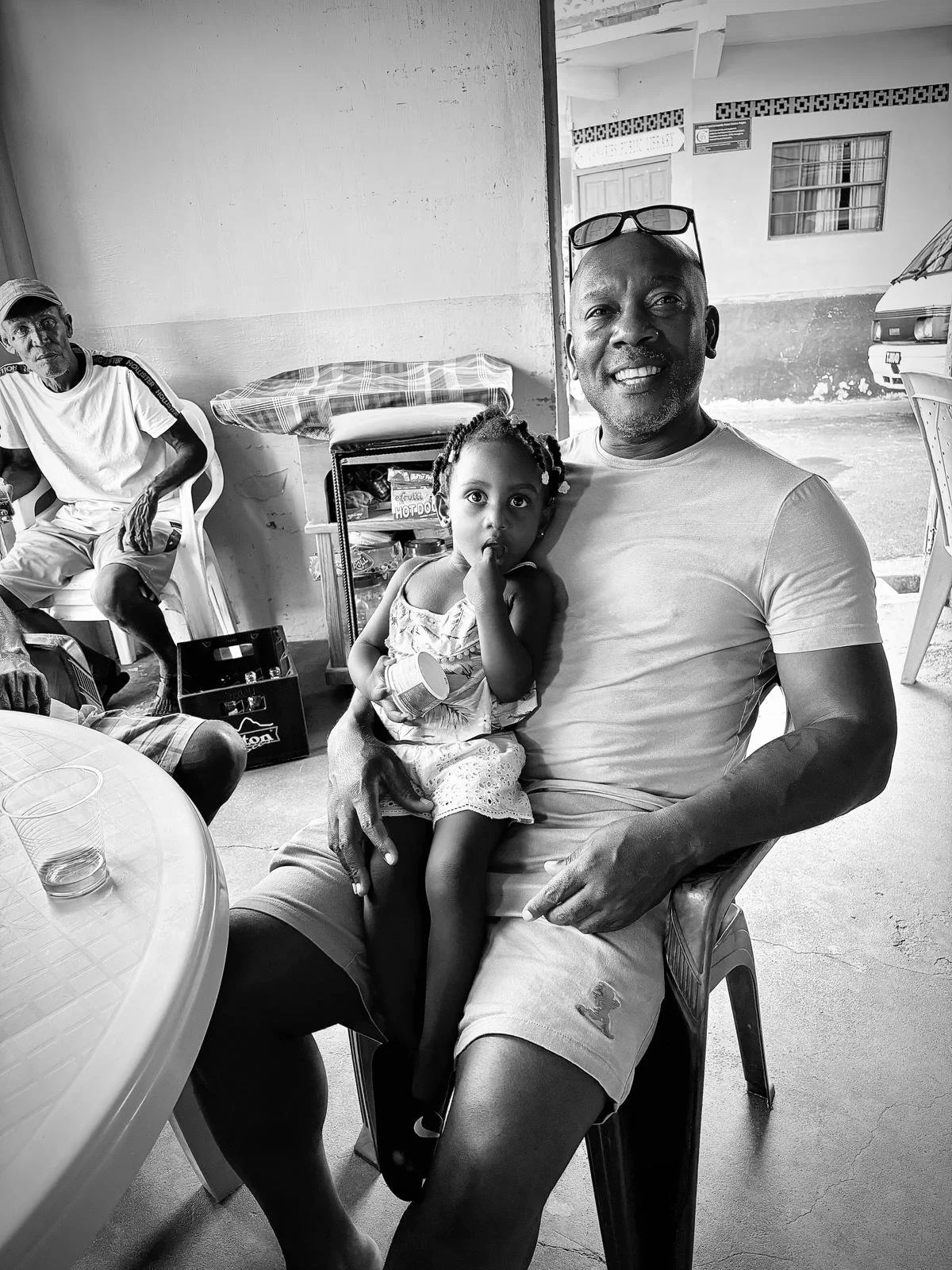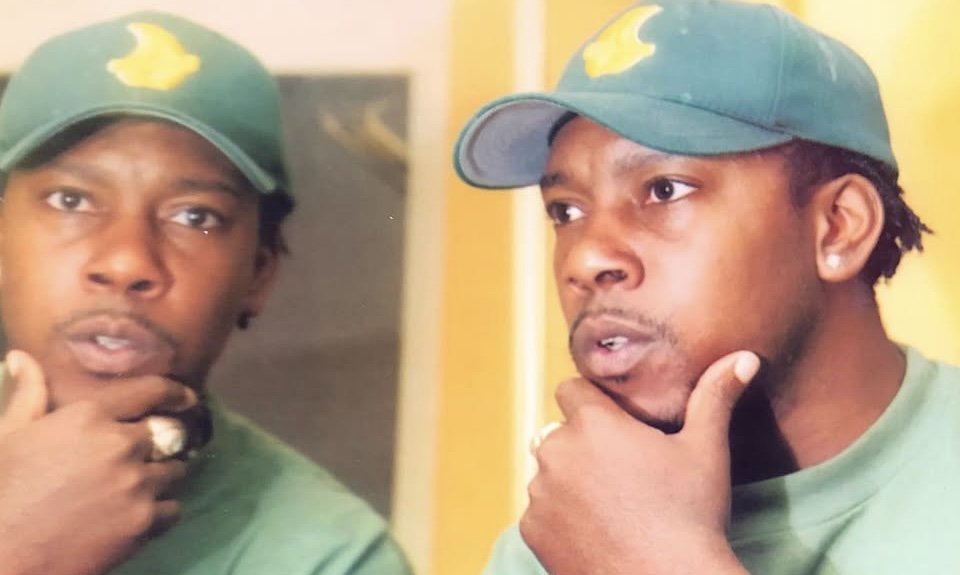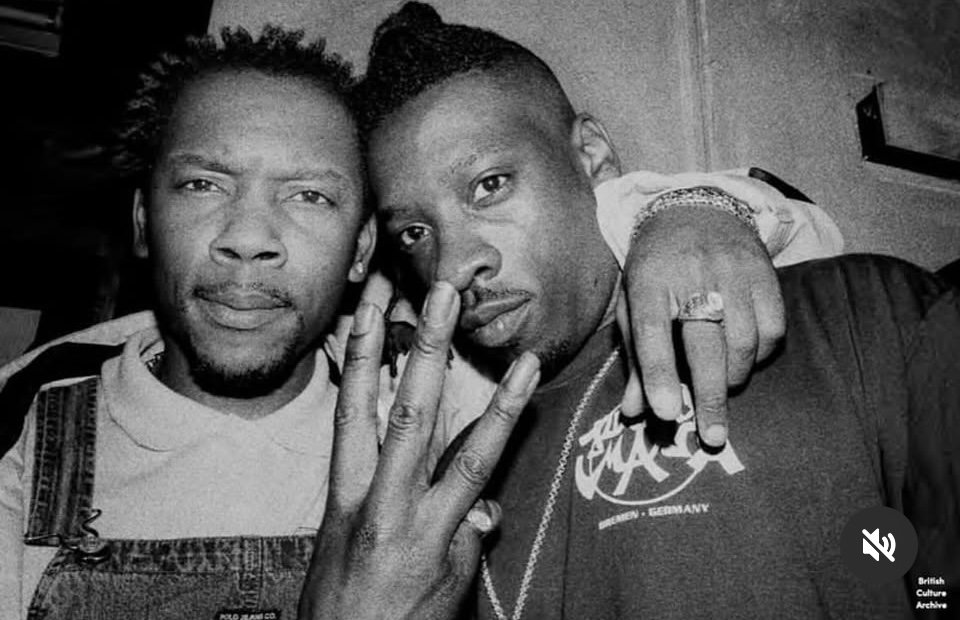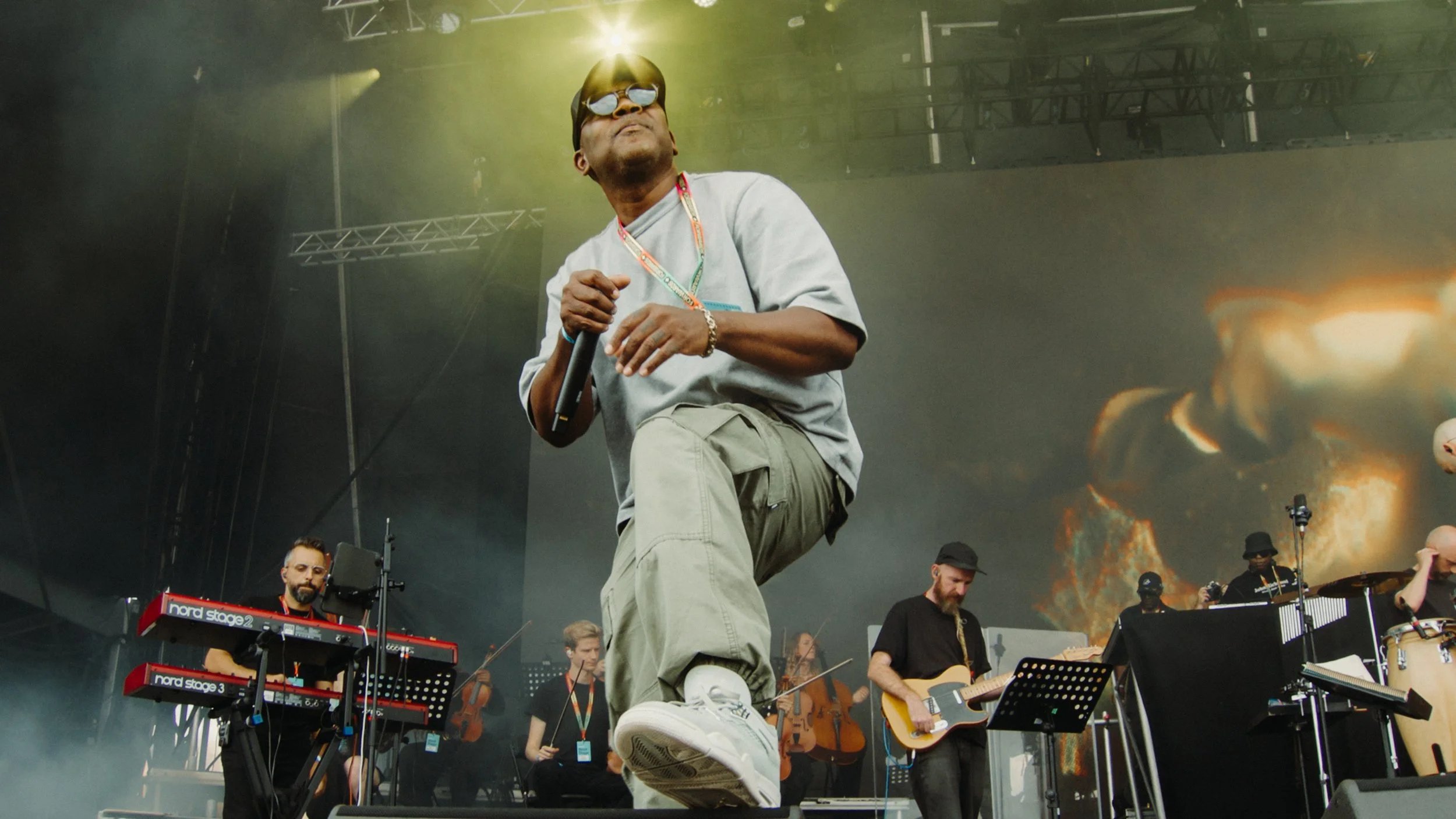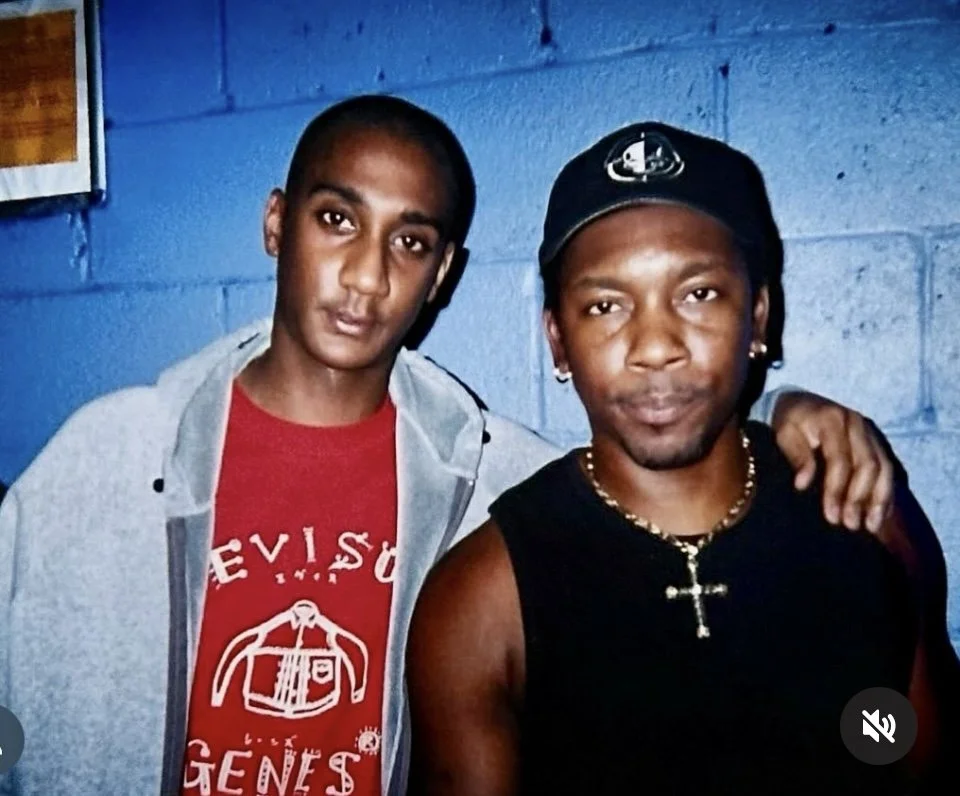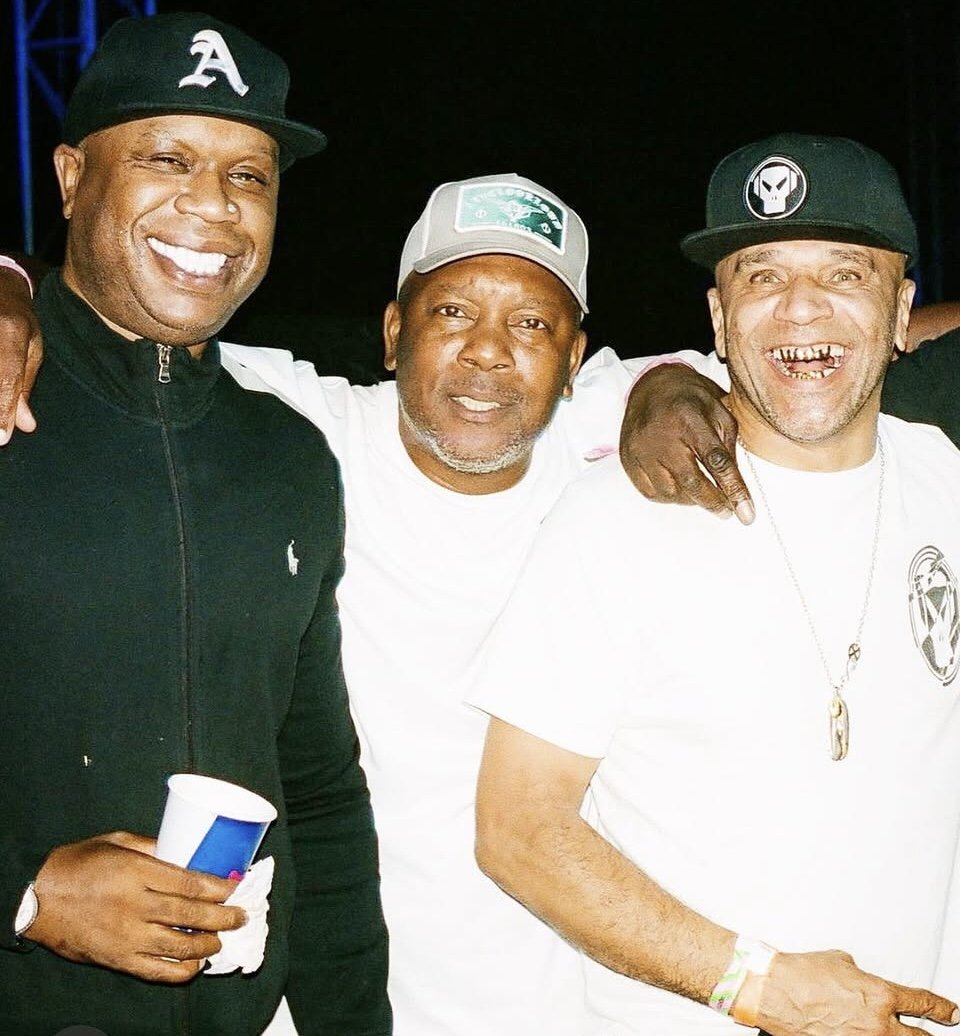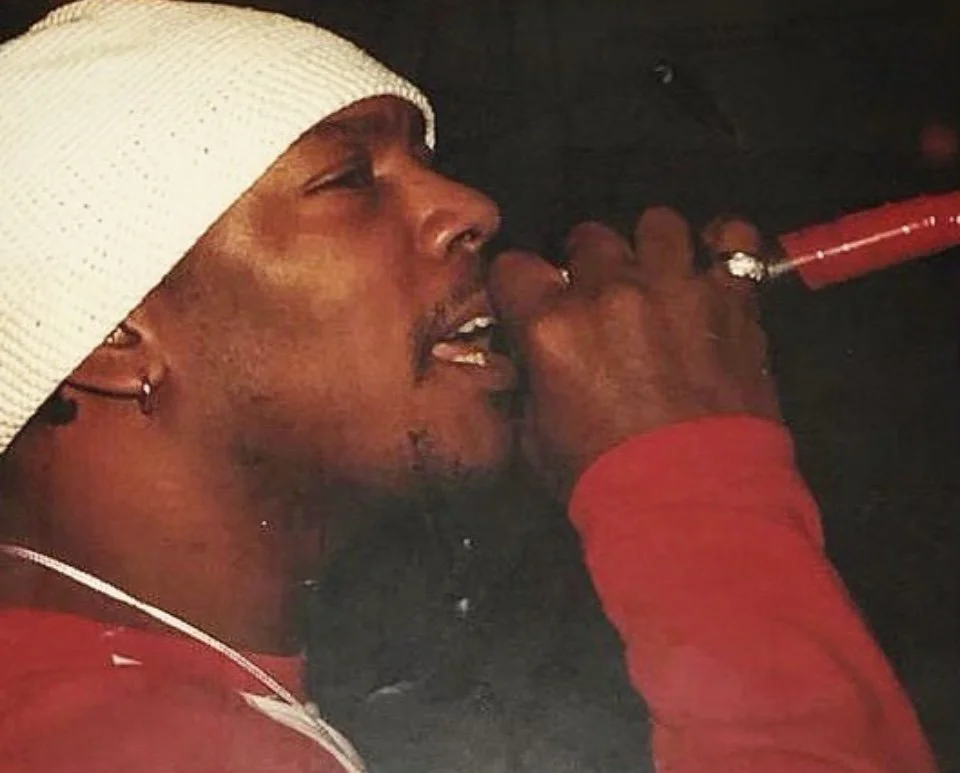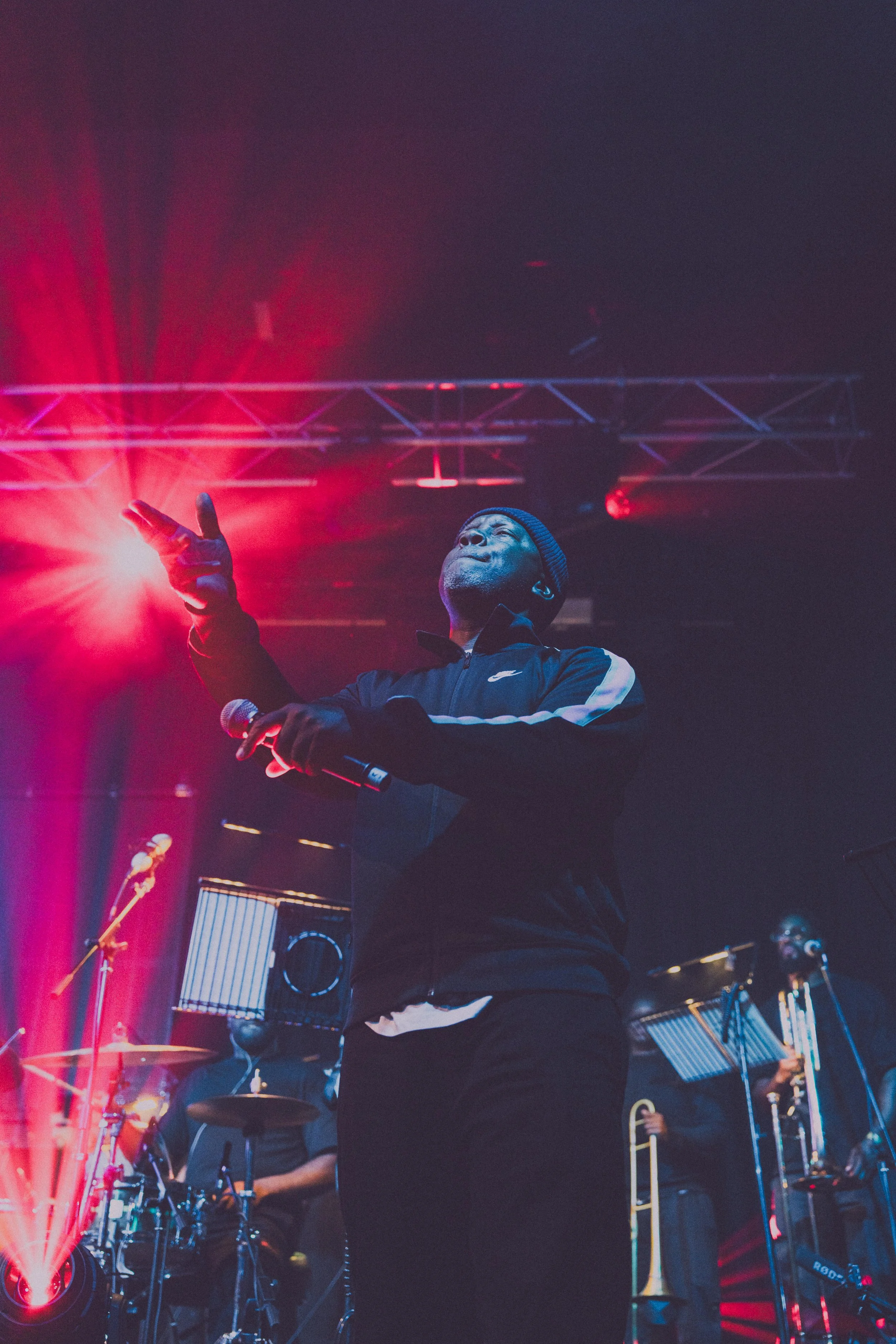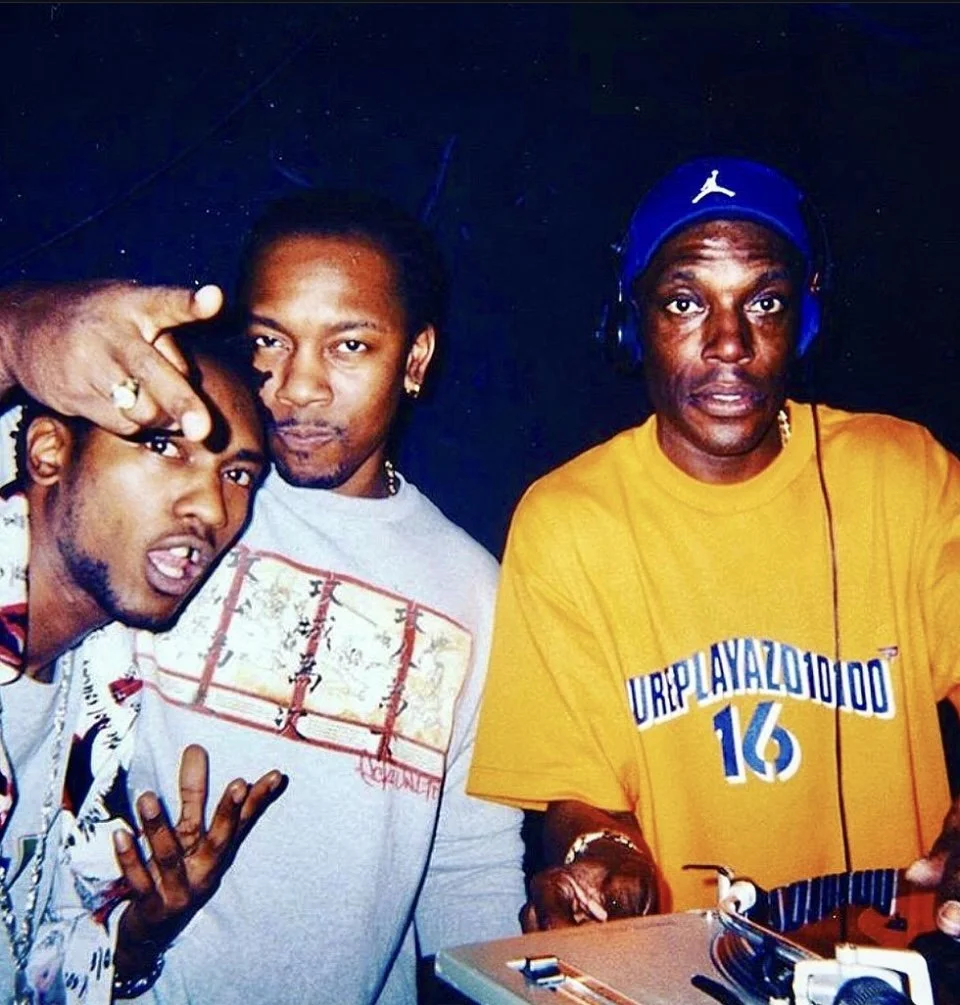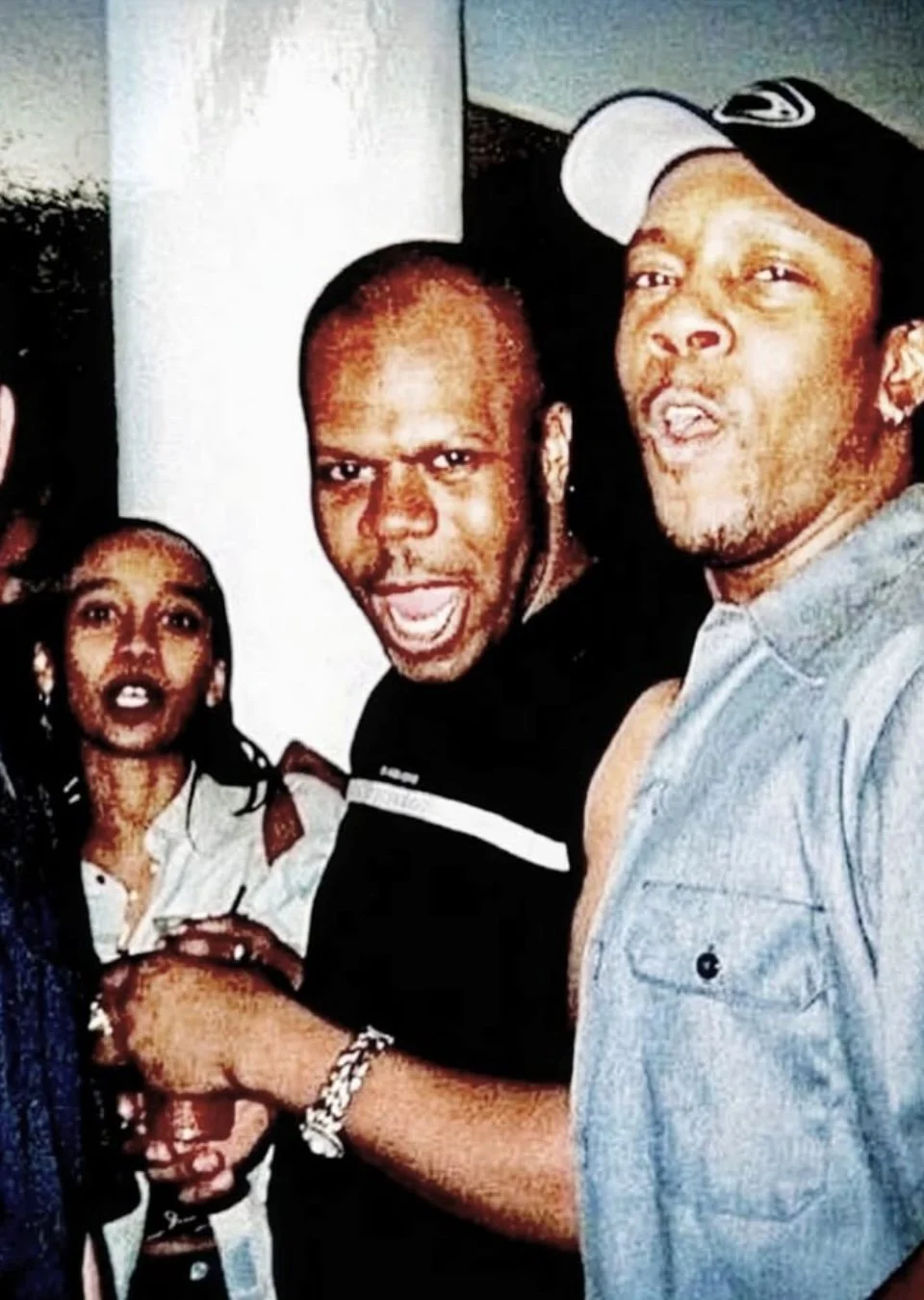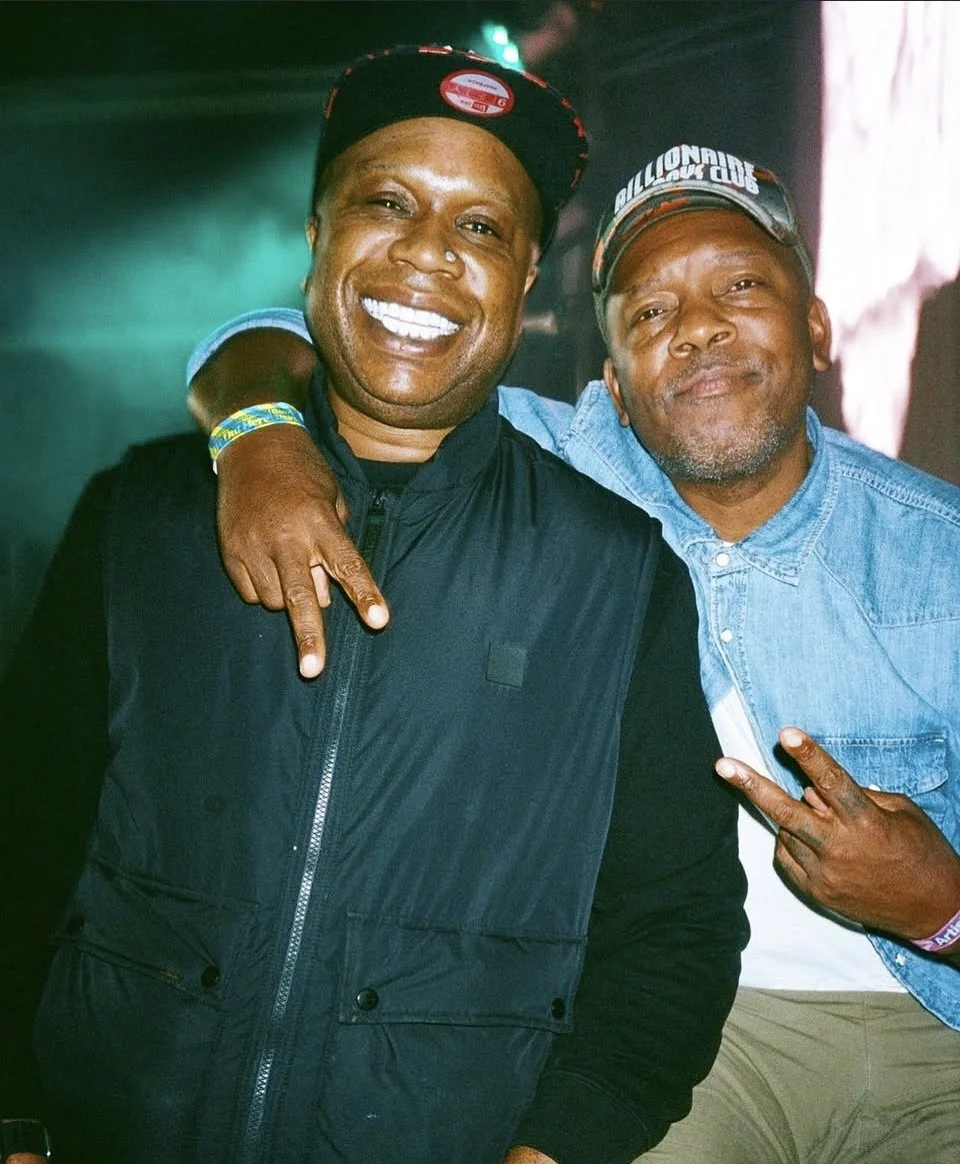MC GQ: From Hackney to the Royal Albert Hall
For over three decades, MC GQ has carried the sound of jungle and drum & bass across the globe. But real interviews with him are few and far between. In this exclusive conversation with Strats, GQ finally tells his story. Celebrating the life, roots, and impact of one of the culture’s most enduring figures.
The original, MC GQ
The original
Q: You’ve been part of this scene for decades, but we don’t hear you in interviews that often. Is that by choice?
A: I’ve always been more about the music than about talking, to be honest. There are interviews with me out there, but a lot of them only scratch the surface. Considering I’ve been in this scene for 36 years, there’s so much history and context that rarely gets touched. That’s probably why it feels like there aren’t many interviews, it’s not that I’m avoiding them, I just don’t do them unless there’s room for a proper, in-depth conversation.
Connection with the people
Q: People say your voice feels like family — like they’ve known you forever, even if they’ve never met you. How does that land with you?
A: I love that question because, honestly, I’d never really thought about it until something happened with my neighbour. For years he’d see me at the weekend with my rucksack, heading off somewhere, and one day he asked what I actually did. I told him I work in the music industry, but I thought he wouldn’t have a clue what I meant, so I explained it was jungle and drum & bass. He suddenly lit up and said he used to listen to jungle back in the day when he lived up north in Lancashire. He then said he had AWOL tapes, CDs, all of that. Then he asked what I actually did in the scene, and I told him I was an MC. When I said I was GQ his jaw just dropped: he’d been living across the road from me all that time without realising I was the voice on the tapes that got him through bad times. That was a beautiful moment, and it really made me understand how deep the connection is between the music and the people who grew up with it.
Hackney through and through
Hackney roots
Q: Take us back to Hackney in the ’70s and ’80s — what was it like growing up there?
A: Growing up in Hackney in the ’70s and ’80s was probably the best time of my life as a youth. The community was beautiful. Where I lived it could be rough, but people looked out for each other and did their best. I was surrounded by street parties, people blasting music outside, neighbours sitting together, youth centres full of sound, there was always something going on. What I loved most was the mix of people. All creeds, all colours, everyone together on the same estate. We didn’t have much, but there was a lot of happiness and energy. These days Hackney’s been heavily gentrified and looks completely different from the place I grew up in, but I’ll always have love for it, I’m Hackney through and through.
GQ at the Royal Albert Hall
St. Lucia
Q: You visit St Lucia a lot — tell us about your family background and connection with the island.
A: St Lucia is definitely my second home and it’s very close to my heart. Both my mum and dad are from there – two different villages – and although I’ve got family uptown, I’ve always preferred being in the village. I first started going over when I was about four, staying with my grandparents, my mum and my brothers. My grandparents were poor and lived in a small wooden house, but that was home, and that’s where some of my best memories come from. At first I thought it was a bit ‘ghetto’ – because it was – but spending six-week stretches there as I got older made me see how beautiful it really is.
The village was where people felt more real. I have such vivid memories of running around with the kids, chasing fireflies, going to the sea and the river with my Uncle Morris, and just feeling completely safe. We’d jump off the jetty into the sea, bathe in the river, eat flying fish, and drink Pitons while the elders reasoned about life. I’d hang out with my rasta uncles, soaking up their wisdom, and it was those little moments that made the place so special.
Most importantly, St Lucia taught me gratitude. My parents always made sure I understood that the small things we take for granted in London — a toilet, a bath, everyday conveniences — weren’t guaranteed in the village. Coming back after those trips made me realise how lucky we were. I’ve tried to pass that lesson down: when I took my daughter, we stayed uptown but always went to the village too, so she saw both sides. Now she’s taken her own son and continued the same tradition. To this day I still prefer the village, it’s beautiful, grounding, and it reminds you to be grateful for the simplest things.
St Lucia
Before music
Q: Before music fully took over, what else were you into — sport, art, anything else that grabbed you?
A: Music was always around me, it was in my blood, so there was no escaping it, but as a kid I was into loads of other things as well. I’d skateboard, roller-skate, hang out with the BMX crew; back then there were some amazing bike riders around. Because I was a bit of an aggy kid my dad decided to take me to a boxing club in Hoxton, Lions Boys Boxing Club, to burn off some energy. That’s where I ended up training and sparring with Lee MacDonald, who people know as Zammo from Grange Hill. Not many realise Lee was a serious boxer; he was European champion at one point. He taught me a lot… mostly by boxing me all round the ring! But for a few years boxing became one of my real passions alongside the music.
School years
Q: And at school — what kind of kid were you?
A: At school I was pretty mischievous, definitely a bit problematic. I liked to fight, I was quite aggy but also funny. The only subjects I really enjoyed were drama and English; the rest didn’t hold my attention. My form teacher, Miss Julia Holder, was amazing though, she always tried to straighten me out when I was getting too hot-headed and was probably the only teacher I genuinely liked. I got suspended a few times and my mum would have to travel all the way down to the school, she’d give me a couple of boxes round the head for embarrassing her like that, and the teachers couldn’t wait to call her or my dad in. Me and my mate Roger Leslie used to nick motorbikes, ride them to school in the morning, park them up near Clissold Park swimming pool, then hot-wire them after school and ride back home to park them in the garages. So yeah, I was definitely mischievous at school, some great moments, some not so great, but that was my school life.
UK icon, MC GQ
First love
Q: Do you remember your first heartbreak?
A: To be honest I can’t really remember a proper heartbreak. But one thing that stands out from my youth was this girl called Anne-Marie who lived across the road. She was beautiful, a bit older than me, I really fancied her but I knew I was way out of my league, so it was never going to happen. It wasn’t heartbreak because we were never together, but I do remember that feeling of really wanting to be with someone you can’t have, that stuck with me as a kid.
Sound system schooling
Q: Your cousin’s Manhattan Sound system was a big part of your life. What were those dances like?
A: My cousin Cassius had a sound called Manhattan Sound – before that it was called Apollo with him, Neil and Jonathan, and then they split and created Manhattan. I learned so much from Cassius. As a kid I’d go over to his place in Lower Clapton and just sit there while he schooled me about tunes – how to select them, how to play them. Back then I always wanted to be a DJ before I ever started MCing, and their record boxes were full of classics: soul, funk, reggae revival, lovers rock. Cassius and my brothers really educated me musically, but Cassius in particular was a big influence. He’s still playing music now, doing big parties and very well respected in that soul era. Big love to Cassius – he was the foundation for a lot of what I do.
Q: You were part of Squadron Hi-Fi too — what did that experience teach you?
A: There’s always been a bit of confusion about Squadron Hi-Fi, I didn’t own it or run it. Squadron was Andrew’s (R.I.B.S) sound. I was just part of the firm. There were a lot of us involved, maybe ten, fifteen guys, all lugging speakers, setting up and playing out. Andrew was the selector and we’d play community centres like Milton Gardens, The Factory, Mayville… loads of different places. Even though I didn’t run it, being part of Squadron was a big part of my life. It gave me a real grounding in the culture, the teamwork, the graft of moving boxes and setting up systems, and the buzz of playing music to people in the community.
School mates, GQ and Det
Q: Is it true you had a sound with DJ Spoony called Tom & Jerry?
A: Yeah, me and DJ Spoony actually had a little sound called Tom & Jerry back in the day, we were probably about 15. What a lot of people don’t know, and you can ask Spoony himself, is that I used to DJ and he used to MC. I’d be doing all the scratching and playing the music, and Spoony would be on the mic. People only know him now as this huge DJ, promoter and incredible artist, but back then we were just two kids from the same estate, same area, doing our thing in community centres. Spoony’s my brother from another, and in those days I was the DJ and he was the MC, that’s how we started out.
Hackney innovators
Q: You were neighbours with DJ Ron, went to school with MC Det, and surrounded by so many pioneers. What was going on in your area back then?
A: Yeah, me, DJ Ron, DJ Hype, Spoony and a bunch of other people all lived around the same area. Looking back now it’s crazy how many big names came out of that one little patch of London, maybe there really was something in the water. On top of that, I used to go and watch Ron play with TNT Sound when we were young, standing right there watching him scratch. I’d also go and check Hype when he was with a sound called Heatwave. Both of them were huge inspirations to me back then. Seeing the way they mixed and scratched, hip-hop into soul, soul into hip-hop, taught me so much and shaped how I approached music myself. They were real idols to me.
Part of the fabric of UK culture
Crossing into acid house
Q: When you first stepped into acid house and breakbeats, how did the reggae/soul crews around you react? Did you catch any grief?
A: I remember it really clearly. When I first started dipping my toes into house and then acid house I used to get absolutely cussed by the reggae crew and the soul-funk crew as well as my brothers, who at the time were running the raregroove sound system. I remember MC Det at school saying to me, ‘You’re listening to that devil-man music!’ Back then it was so underground that hardly anyone understood it, but I was intrigued. Julie Braithwaite, who went to my school who was in my class, was probably the only other person who got it. Me and her would hit a few warehouse parties and even house parties where they’d black out the windows, stick on a strobe and play acid house and house all night. Walking into those parties for the first time was mind-blowing, I’d never experienced anything like it. Different kinds of people all under one roof, everyone just partying together, the sound of the music… it completely hooked me. It went on to become a huge part of my life, but at the time I definitely got cursed out a lot for crossing that line into something new.
Rage and GQ
First raves
Q: Do you remember your very first rave? Where was it, who was playing?
A: To be honest I can’t remember my very first acid house rave, there were lots of acid and ecstasy, I was only 16, maybe 17, and there were so many parties happening at the time. But there are a few that really stand out in my memory. Beyond Therapy, which was JP’s (who went on to run AWOL and World Dance), Silver City in Tottenham, Croland Road, was my favourite, Labyrinth Dalston, Channel Club, Spectrum on Monday night, Heavens, Dangens, Genesis, The Clink street, Perception, Weekend World… all around ’88-89. The Sun Rises and plenty of others too, just too many to mention. Those are the ones that really stick in my mind.
Q: Those first raves look mad compared to today — did it ever feel dangerous being in the middle of it?
A: Ironically, even with so many people crammed under one roof, whether it was a house party or a warehouse, I never felt unsafe. Everyone just wanted to party. People had been working all week and when the weekend came, the vibe was pure release. I never met any trouble, just happy faces. There wasn’t even proper security back then, but nobody seemed to care. It felt carefree, no worries, just this exciting new environment with a brand-new sound. I never felt fearful, just intrigued to be part of something so fresh.
Style & influence
Q: Loads of MCs have modelled their style on you — was that intentional on your part, or just you being you?
A: I was always conscious of trying to sound different from what other MCs were doing. From early on I wanted to stand out – not just blend in. So yeah, I did make a deliberate choice to be unique and approach things differently, because I was hungry to be noticed. I was passionate about my style and determined to create something that felt like my own, rather than copy what was already out there. Looking back now, it’s humbling to see that approach end up influencing a whole generation of MCs – at the time I was just trying to be myself.
3 G’s, Grooverider, GQ, Goldie
Impact on culture
Q: Where do you think your voice comes from?
A: I think my voice comes from the melting pot of music that’s influenced me from when I was a kid right through to now. Soul, hip-hop, dub, Studio One reggae, all of that shaped me. I grew up surrounded by different genres, and each of them gave me something different to take in. The sound of my voice and the way I use it is really just a reflection of all those influences rolled into one. So I guess subconsciously, they all contributed to what my voice has become.
Q: Did you realise at the time just how much impact you were having on the culture?
A: No, I never realised my impact on the culture at the time. I just felt like I was part of this underground movement that started around ’88, ’89, and I was watching it evolve, from house to acid house, to breakbeat, jungle, drum & bass and everything in between. Back then it was just friends making tunes, having fun, and none of us could have imagined the legacy it would go on to build. Almost 40 years later, the same energy is still here, and the sound has grown into something global. When I look back at that journey and then find myself on stage with the Outlook Orchestra at the Royal Albert Hall, I think, yeah, I still have to pinch myself. But at the time? I was just living it. We all were.
Music as medicine
Q: Has music ever been the thing that carried you through a hard time in life?
A: Yes, music has got me through some really hard times. When I lost my father in 2017, it was the music that helped me cope. I think we can all agree that music is a universal language, but it’s also a kind of medicine, it heals. It’s always been that way for me. Music gives us a way to communicate when words don’t feel enough, and in those moments it becomes more than just sound, it becomes something that carries you through. That’s why it plays such a big part in my life and in so many other people’s lives too.
A universal language
Off nights
Q: You’re known for consistency on stage — but have you ever had an off night?
A: Yeah, of course, everybody does. I’ve had plenty of off nights over the years. The thing is, you just try to style it out so the crowd don’t really notice. Most of the time they’re just enjoying themselves, but I’ll know if I wasn’t at my best. I’m quite hard on myself, if I feel I’ve made mistakes, I’ll sit there in the taxi on the way home replaying it in my head. At the end of the day, I’m only human like everyone else, and I have off days too. The important thing is to keep showing up and give as much as you can in the moment.
Q: Ever been too waved to perform?
A: Give me some brandy and I’m sure to shell down the place. Honestly, it’s never happened to me, I’ve never been too drunk to perform. If anything, it works in reverse: the more brandy, the more shelling you’ll get. But I always stay in control, because at the end of the day you’ve got to deliver for the crowd. It’s all about balance.
Timekeeping
Q: What’s the secret to always being on time with so much travelling?
A: I just like to be punctual, I’ve always been like that in myself. When it comes to work, especially, I think it’s important. If a promoter’s paying for you to come and do a job, then you owe it to them to make the effort to be on time. I don’t like missing flights or trains, and I don’t like letting people down. Funny enough, I was always late for school as a kid, but with work it’s different. With work I’ve always felt you’ve got to show up properly, and that’s something I’ve carried with me throughout my career.
Music man through and through
Home listening
Q: What do you play at home when you’re just chilling?
A: Funny enough, I don’t actually listen to much drum and bass at home, unless I need to get tunes ready for the label. Day to day, it’s a real mixed bag. You could walk in and hear Coldplay, then Studio One, Lovers Rock, merengue if my partner’s got her way, Afrobeats, soul, funk, hip-hop, reggae, jazz… the list goes on. You never really know what you’re going to get in the house, but it’s always music.
I don’t really have one favourite song or artist at the moment, it changes all the time. What I will say is, when I’ve had a joint, I listen to music a lot more intricately. I’ll sit there and break down the production, really get into how the tune’s been made. So for me it’s less about one track and more about constantly exploring different sounds.
Lesser-known
Q: Tell us something people might not know about you.
A: Well, first things first, I’m not going to expose too much (laughs), but I’ll give you a couple. One is that I’m a bit of an adrenaline junkie. I love snowboarding, and I’ve even had a few lessons flying helicopters. I still get on a skateboard or roller skates now and then, even at my age, I guess I’m a bit crazy like that.
On the other side, I’m really into health and wellbeing. I drive my girlfriend and my daughter mad with my juices and herbs, they sometimes call me Dr. Sebi. If anyone’s got a cold, I’ll be there saying I can fix them with straight herbs. Call me weird if you want, but that’s me. I also practice meditation and gratitude almost every day. For me, gratitude is really important, it keeps me grounded and balanced no matter what’s going on.
Concerts
Q: What’s the best concert you’ve ever been to?
A: I’ve been lucky enough to see some amazing shows. One of the best was at the Royal Albert Hall seeing Juan Luis Guerra, and Cirque du Soleil blew me away as well. But if I had to pick one, it would be Stevie Wonder. That was probably the best concert I’ve ever been to.
Fearless, GQ, Kenny Ken
Randall
Q: We all miss Randall dearly. What did he mean to you personally?
A: Randall… what can I say? He was a unique DJ, I don’t think you’ll ever find another like him. As a person he was funny, loud, full of character, and his style of DJing was completely his own. For me, he was without doubt one of the best to ever do it, the DJs’ DJ. You’d have people like Grooverider, Fabio, Ron, and so many others turn up at Paradise Club after their own sets just to watch Randall play, because his selection and the way he mixed was unmatched.
On a personal level, working with him was something special. We had this connection where we didn’t even need to speak on stage, just a head nod and I knew exactly what direction we were going in. I haven’t had that with anyone else, and I don’t think I ever will again. When he passed, it hit me hard. If I’m honest, a little part of me died with him, because he brought out a fire in me that nobody else could trigger.
I’m still processing the loss. Every weekend I go out and I feel that something’s missing, not just the music, but the jokes, the laughter, the energy that came with him. There’s a big void in the scene without Randall, and for me personally it’s even deeper. He wasn’t just a DJ I worked with, he was my brother in music. Things haven’t been the same since.
And when I think back, it wasn’t just about the clubs, those tape packs of me and Randall together travelled across the world. They’re what helped take us to different countries, opened doors for us internationally. That shows you how powerful what we had really was. It wasn’t just local, it was global.
‘The best to ever do it’ - DJ Randall
Scene now
Q: How do you feel about the scene today?
A: I think the scene is always evolving, always going through different transitions, and that’s what makes it special. As big as it seems, it’s still quite tight-knit. For me, I’d like to see a bit more balance. There are politics in the scene, and it would be nice if there were less of that. But overall, I’m optimistic. The music is still going from strength to strength, and the energy is still there. I just hope moving forward we can keep it fair, balanced, and focused on the music itself.
Advice to MCs
Q: People say you, DRS and SP:MC are the only MCs nobody moans about on a set. What’s the secret — and what’s your advice for upcoming MCs?
A: I think consistency is really important, but so is finding your own style. A big part of it is understanding that every DJ plays differently, and you need to adapt your MCing to that. For example, if I’m working with Fabio and he’s playing something soulful, I’ll change my tone, maybe be more melodic, give more space, let the music breathe. But if I’m working with someone like Break or DJ Marky on a heavier, more impact set, then I’ll be robust on the mic, more bars, stronger pronunciation, tighter timing.
That versatility is key. You can’t approach every set the same way, otherwise it doesn’t work. So my advice to upcoming MCs would be: be true to yourself, be passionate about what you’re doing, and master your craft. Always serve the music, not your ego. And most importantly, remember that you and the DJ are working together as a collective, it’s about balance and chemistry between the two of you. That’s what makes a set really connect with the crowd.
Legendary. Grooverider and GQ
Conduct would like to thank MC GQ for opening up and sharing his story with us. A voice that has carried generations of ravers is also a life filled with roots, resilience, and culture.
You can watch the full-length documentary on GQ’s journey right here, and for even more behind-the-scenes moments and extended extras, subscribe to Conduct+.
This is just the beginning — more stories, more legends, more culture to come.
